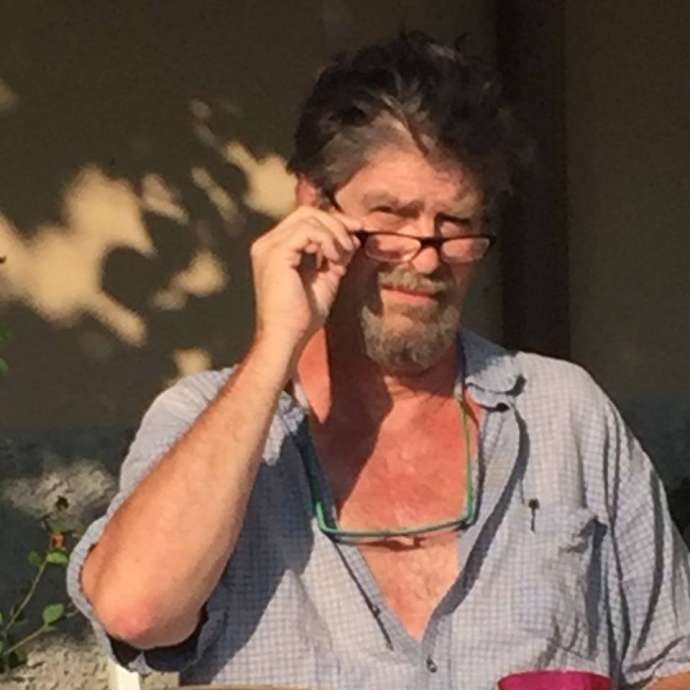We sent some questions to the writer Rick Harsch, and these were his answers, prefaced with the following.
I have a thing about written interviews—I like to rush through them because they are generally written only because of a lack of opportunity for a live, or at least spontaneous interview. So I’m going to rush through this. As you read, imagine me speaking on a balcony, relaxed, maybe even with a drink.
Where did you live before Slovenia, and what brought you here?
I always wanted to escape the US, largely because I was raised in the dullest of suburban environs, and as time wore on for political and cultural reasons as well. Ronald Reagan was to me what Donald Trump is to the university student of today.
What were your first impressions of Slovenia, and how do they compare with what you think now?
I studied some Balkan history, and though a lot of Slovenes don’t like being considered Balkan, this is a sort of border Balkan zone, it IS Balkan here, and the best of what that means has still been true. When my wife and I looked to move, she being from India we considered Chennai, but work was a likely issue, so we decided Europe and warm, which meant the Mediterranean, and I liked the notion of living in a Slavic country, and Slovenia (this was 2001) was relatively young, and so on. So I found what I was looking for: my impressions were of a mixed culture on the Mediterranean, with Balkan aspects, a nice mix, and Istria, much of what I was looking for, but even more, more locus with meaning.
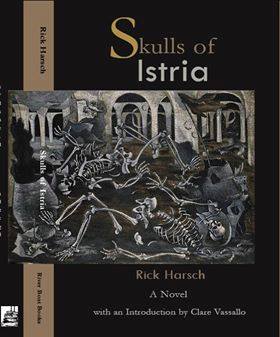
How did you start looking for work here, and what was that experience like?
I planned to live here and write, which at the same did not seem insane as I had three novels out and all three had been picked up by the French. But I got a teaching job to be safe, and another, to be safer, and got fired the first day from the first, so I have since then been more or less half-safe.
What has been your experience of culture shock in Slovenia?
Slovenes are hard to shock. I’m hard to shock.
What are some things from Slovenia that you think your home country could benefit from?
I think my home country is doomed.
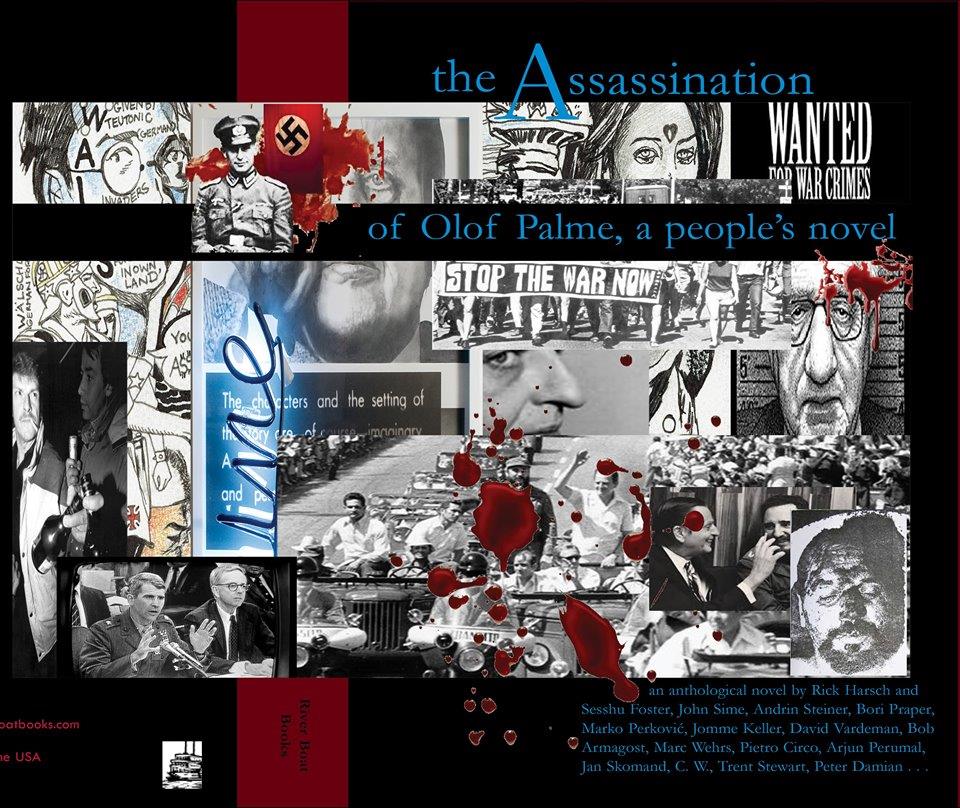
And what are some things from your home country that you think Slovenia could benefit from?
Slovenia could use some of the dynamism that subcultures in the US have. As Slovenia is so small, it would not be terribly surprising if some good cultural/artistic movement gained enough momentum to make real culture and then economic changes in this country.
Have you learned learn Slovene, and if so, how did you learn it?
From the first day.
I learned from daily life. Slovenes are too generous perhaps regarding their language. My own true problem with the language is that because we have no economic freedom, I am enwrapped in my own language, through which I do all my work and all my writing and the reading that feeds my writing. I love languages but am not at this point free to indulge in them, even though I live in Slovenia and spend a lot of time in Italy.
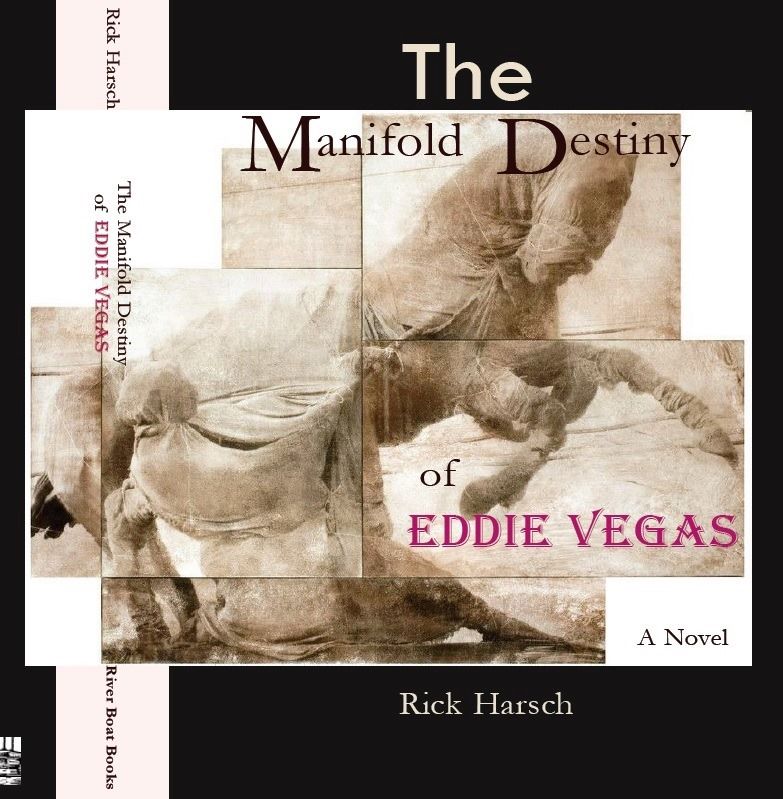
Do you follow Slovenian politics and culture, and what things frustrate you about life here?
To varying degrees. What frustrates me is it’s lackluster, uninspired political life; it’s adherence to the idiocies of the EU and NATO. The way it sold its best businesses and got nothing but less freedom for it.
How do you feel about Slovenian food and drink?
Complaints about Slovene food are unfair because the places with the best cuisine are large cities with diverse offerings. Naturally a smaller space has developed a more limited cuisine. That said: sarma and calamari.
I love the drink. Refošk made my alcoholism a real problem. The rest, the various rakijas, are amazing. I get the feeling that there is a Slovene gene that looks at every specific aspect of the natural world and wonders what kind of žganje it would make.
What things delight you?
The people, the history, the nature. The liquor the liquor the liquor…
Do you feel more like an American in exile or an immigrant?
I am a New Istrian.
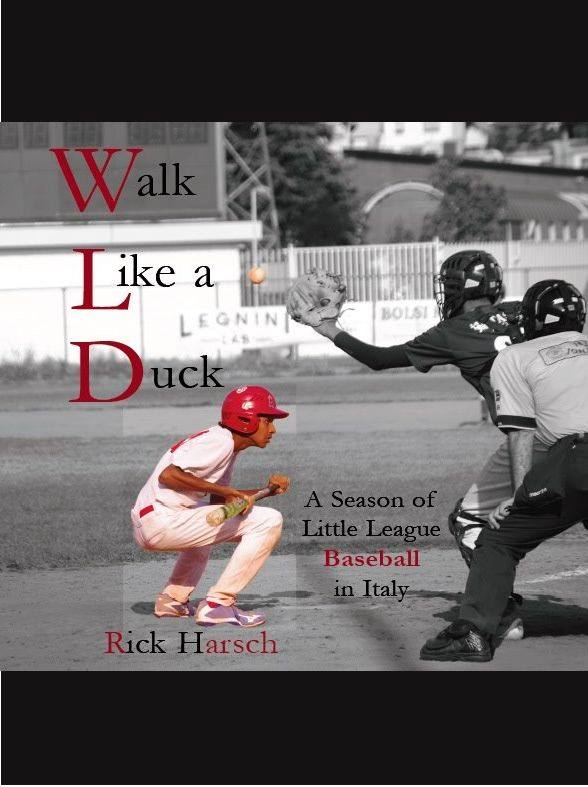
Do you think you’ll stay in Slovenia for the rest of your life, and would you advise a friend to move here?
Yes, and absolutely.
How would characterize Izola as compared to the rest of Slovenia?
My guess is that though it seems obvious that Izola has been formed into a specific, a unique place, by a particular history and a very particular meeting of peoples, I would find most places in the rest of Slovenia similar if I lived there. Deeper down, I think Europeans are far more alike than they appear on the surface.
Would you ever choose to live in Ljubljana, or elsewhere in Slovenia?
No. I need the warmth and water.
I think you work in Trieste, why don’t you live there?
I was fired from my job in Trieste. I love the city, but migration is a difficult business and I am not ready to do it again. That’s twice I have mentioned being fired, so let me say something about that: I was fired three times from one school at the same time, from three different jobs. This was the University of Primorska, where I worked for Lucija Čok’s language center, the English Department, and as an editor for the Science and Research Center. All three fired me without notice, without any notice, during the summer/fall of one of those years around 2007 or so. I know a great deal of the dirt behind it all, but suffice it to say that giant egos are generally where you think they will be and invitations to be free are the whispers of doom in the ears of teachers.
What are some local businesses that you recommend?
I recommend pri Kralju tavern, as it is more like a tavern probably was a few hundred years ago than any other place on the coast. Though Koper’s Rampin is another terrific, and unique place. Otherwise, I lament the days of the čevlar. I recommend a leather shop on Koprska Ulica, but I don’t know what it’s called. I recommend every small business because they all need your help.
Are there any books about Slovenia you’d recommend?
Zupan’s Minuet for Guitar is one of the great war novels of literary history. Jože Pirjevec is a great historian and his biography of Tito is finally available in English. Anyone who reads English might appreciate my simple book about the streets of the old island part of Izola, called Wandering Stone. I’ve heard the Slovene translation is good, as well. Currently the book is sold out and no one knows if it will be printed again. The Občina would do well to buy the rights and keep it on shelves as there is little in English about Izola.
Which of your works are about Slovenia, and why might our readers find them interesting?
My novel Skulls of Istria is a confession style novel, told in a tavern in Piran. Kramberger z opico (only available in Slovene) is a comedy of assassination with some fun Slovene matters included—in fact just a couple days ago the editor of a small publication on the internet compared the chapter on Erazem to the famous chapter known as “Oxen of the Sun” by James Joyce in Ulysses.
What’s your most recent publication?
I have two books coming out in the fall this year: a novel that takes place in the US called The Manifold Destiny of Eddie Vegas, a vast work described well enough here.
That catalogue also has another book I think most people around here would enjoy, which is called Walk Like a Duck, a Season of Little League Baseball in Italy, which I wrote in diary form last year, as my son plays baseball in Italy. There’s a great deal of fun stuff in their about Italian antics, historical mostly, which are funny now but weren’t, I suppose then. It’s also funny to watch adults trying to destroy the laughter and joy of the young, at least when it fails, as it mostly does in sporting events.
What are you working on now?
I’m writing another book that River Boat Books is supporting, but this is an odd one. It’s called The Assassination of Olof Palme, a People’s Novel, which it is, as it is an anthological novel, that I intend to include at least 50 guest writers, whose work will be incorporated into the novel, which should stretch 1,000 or so pages. About 50 pages in, I think at least 15 people have contributed, some unknowingly. I don’t think anything quite like this has done before—though writers have tried composing a novel of chapters by different writers, all very orderly. This is quite a different matter. The book is for the most part about US hijinks in post WWII Europe, so a lot of ground is covered and a lot of ideas are welcome. Even Italian readers might like it, after all the mockery they suffer in the baseball book, in this one they get a rather accurate telling of the US role in the anni di piombo.

